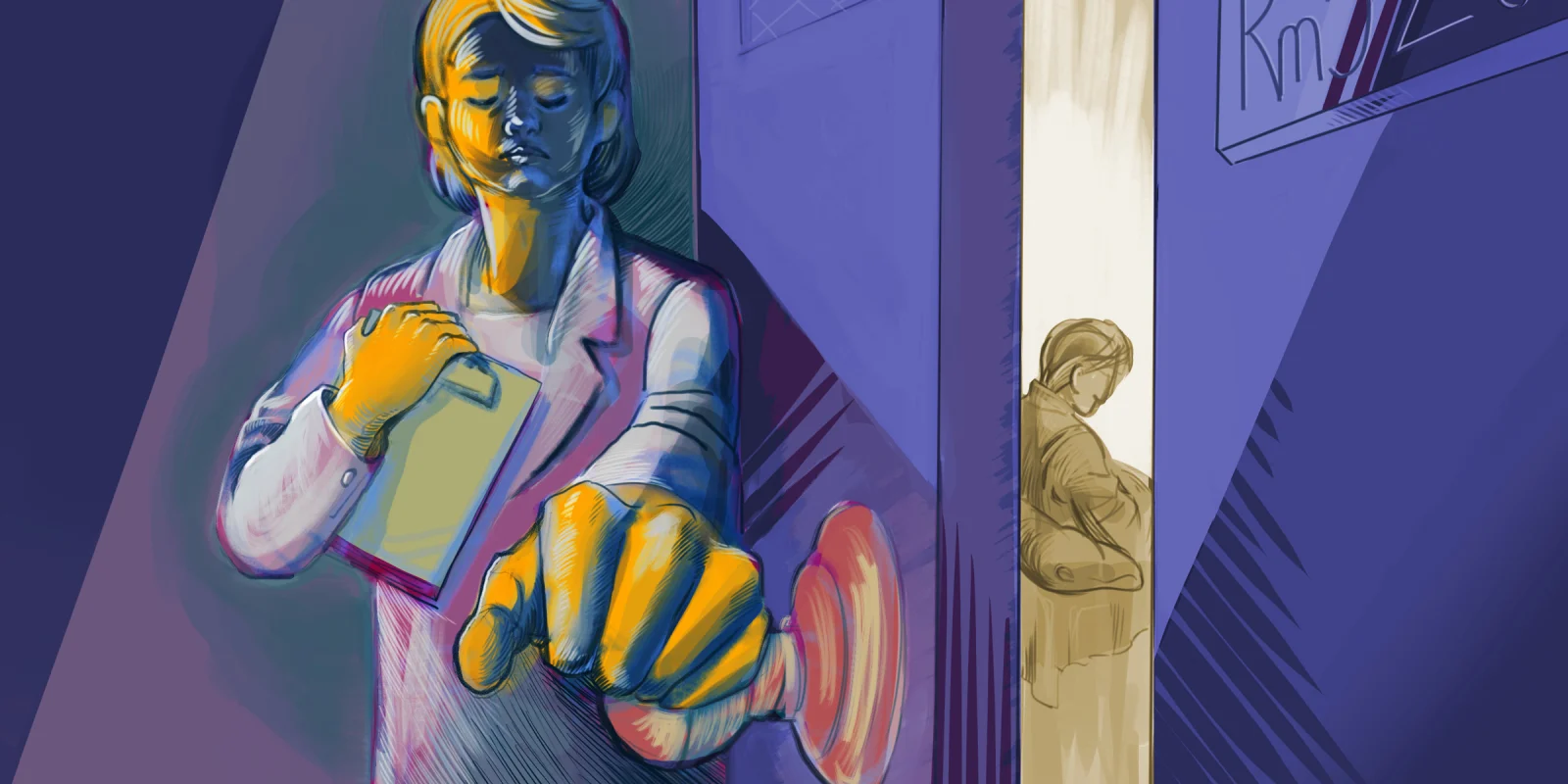A few weeks ago, a young healthy patient walked into my office for a new patient visit. She explained for about a half hour that she had not worked in months, as she had injured herself on the job and needed immediate surgery to fix her problem. During her interview, she explained that she had been seen by multiple physicians, none of whom could manage this. She wanted to know when I could schedule her for an exploratory procedure. I reviewed her chart, where I saw multiple notes from physicians that could not find anything wrong, along with normal imaging and normal physical exams. Each physician recommended that she be seen by a different department. After a complete physical exam, I explained that she had a normal physical exam and I could not recommend surgery. She asked for a second opinion which I provided, and I sent her on her way with an option to return should she develop any additional symptoms or have any concerns. After this interaction, she contacted my office for a return to work note.
This simple interaction is not uncommon — a patient has diagnosed themselves and they are looking for confirmation of their diagnosis. In a world where patient satisfaction scores are a performance metric, and the specter of litigation can be weaponized, explaining to a patient that you may not agree with their diagnosis or cannot offer the treatment they believe they need can lead to uncomfortable and sometimes dangerous confrontations.
In the last decade, the patient-physician relationship has changed. Many of us trained in an era where you could freely give out your home phone number to a patient, secure in the knowledge that they would only reach out to you if there were an emergency. Now, many patients expect 24-hour access and immediate resolution to non-urgent issues. If you are part of a call schedule in the U.S., I am willing to bet you have been called by the hospital at midnight to provide an order for a Cepacol lozenge or asked by a patient to refill a prescription for Viagra on a Sunday at 6:30 a.m. While many of us chuckle and share these stories with our colleagues, the cumulative effects can be dire and contribute to physician burnout. Facing this change in expectation has been difficult. Coupled with the decrease in staffing and reimbursement, the practice of medicine has become increasingly challenging to navigate.
So what happens when a patient demands more than you can provide? This is a hard question to answer, and as a resident physician, I can say that I was not trained to recognize when a patient's expectations may be unrealistic or even abusive. The nature of providing health care is focused on empathy and altruism toward the patient, rather than withholding care. There are usually signs that a patient has unrealistic expectations and may present a challenge. When this does happen, it may be better to extract yourself from the situation and explain to the patient why this is happening.
Read the Signs
It should be no surprise that it is rare for a patient to be released from the care of another physician. While this can happen for several reasons, chief among them is failing to show up for scheduled visits and/or to follow a recommended care plan. Another common reason is inability to pay for care. I am sure I am not alone in managing the patient that misses several visits only to call weeks later requesting a medication refill. This is a common pattern and can be a symptom of a larger problem. Some people may not be able to see a physician during working hours or because of a family obligation. Personally, once I am aware of these impediments I will attempt to schedule when it is most convenient for the patient, but should this effort fail, it may be necessary to terminate the relationship.
Know Your Rights
It is important to remember that you are not legally obliged to provide care but if you are an employed physician, you should know your employer's policy on disengagement.
For many, this requires documentation of multiple offenses and a letter detailing the reason for termination of care. A major reason to consider transfer of care is treatment of non-surgical pain. In the wake of the opioid pandemic, there are accepted practice guidelines for opioid use after surgery. Discuss expected pain management before procedures and remember there is an expectation for continuity of care which means that if a patient is in the middle of treatment such as a chemotherapeutic course or a course of radiation, it is generally considered unacceptable to terminate care.
Protect Your Staff and Yourself
When it comes to dealing with problem patients, as a profession, we are hesitant to terminate patient-physician relationships at the first sign of trouble. This hesitancy can place us and our staff in a dangerous position. At the first sign of a patient abusing a staff member, patients should be issued a stern warning or possibly terminated from the practice. When a patient is verbally abusive to the staff and/or shows up with a weapon, termination of care is generally accepted practice. Legal protections for carrying firearms and concealed weapons continue to change in the U.S. It is important to know that hospitals are not considered federal gun-free zones like schools and are subject to state regulations. Again, it is important to have a plan to deal with abusive patients or know the organizational policy, and do not hesitate to request additional security if it is needed.
There will be times when you and a patient simply are not working well together and/or a patient requires a different type of care from a different health care provider. If you find yourself with a patient who needs to be removed from your practice, remember that you are a member of a large community of a physicians, nurses, and APPs — while we want to “do no harm” and treat all patients, you must take care of yourself as well. Sometimes the best care for a patient will be referring them out of your practice.
Have you ever "broken up" with a patient?
Alexandria Lynch is a general urologist with a focus on robotic surgery practicing in New York. She believes that practicing medicine is a privilege that can build a well-educated, healthier society, and encourage a just culture. As a native New Yorker, she enjoys long walks along the Westside highway admiring the Manhattan waterfront, thin-crust pizza, writing, flying, and endless afternoons at the Strand. Dr. Lynch is a 2021–2022 Doximity Op-Med Fellow.
Illustration by April Brust







